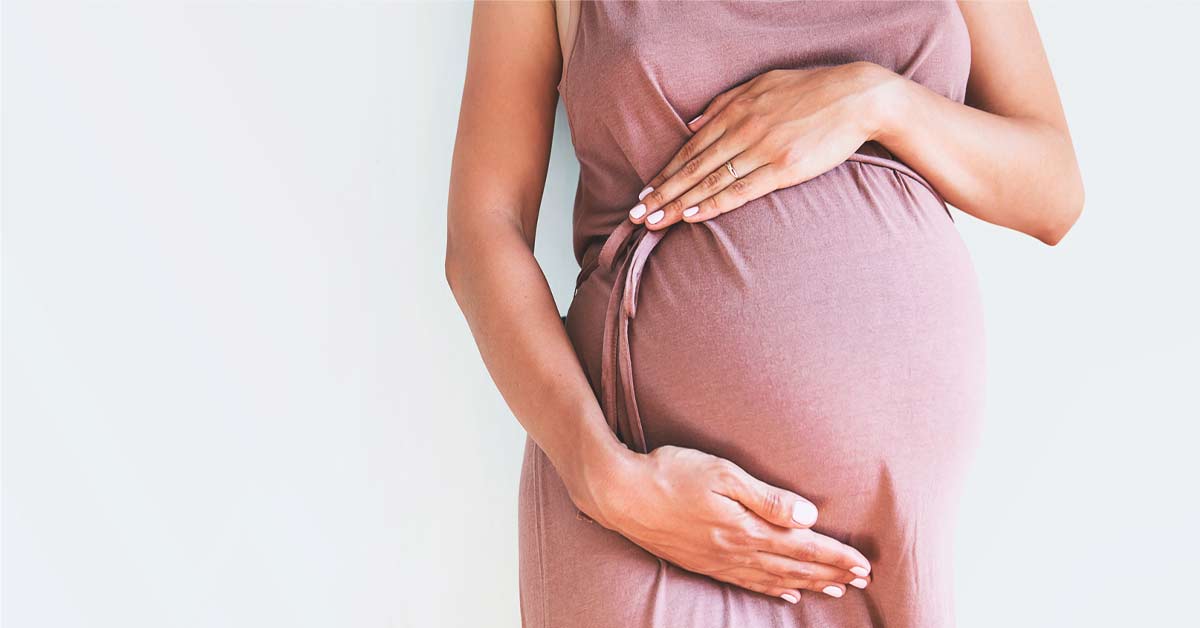Finding out you’re expecting can be one of the most joyful moments of your life. Finding out your pregnancy is high-risk can be one of the scariest. You may not know exactly what that means for your pregnancy or your baby at first.
That fear of the unknown can add a great deal of stress to your life – but knowing ahead of time how the “high-risk” label affects your pregnancy can help you plan for the best.
What Is a High-Risk Pregnancy?
A high-risk pregnancy means the mother or her baby has a greater risk of complications during pregnancy or delivery. You may need special care or monitoring to prevent complications if you have a high-risk pregnancy.
There are many reasons a pregnancy can be considered high-risk. Some are related to lifestyle factors, while others are health conditions a woman had before getting pregnant that can affect the pregnancy.
Lifestyle factors that can make a pregnancy high-risk include smoking, drinking alcohol, and using drugs. All of those can affect the baby’s growth and health before and after birth.
Existing Health Conditions Can Affect a Pregnancy
A mother’s existing health conditions can also cause problems during pregnancy, including:
- Age – teenagers and women over 35 are at risk
- Autoimmune disease
- COVID-19
- Diabetes
- Epilepsy
- High blood pressure
- HIV/AIDS
- Kidney disease
- Obesity
- Polycystic ovary syndrome
- Sexually transmitted diseases
- Thyroid disease
- And more
Having one of these conditions doesn’t always mean you’ll have complications during your pregnancy. Still, it does mean your doctor will need to monitor you and your baby carefully throughout your pregnancy to be safe.
Pregnancy Can Develop Temporary Conditions
Sometimes, a high-risk pregnancy develops as the pregnancy progresses, as in:
Gestational diabetes – When a woman with no history of diabetes develops diabetes during pregnancy, it’s called gestational diabetes. After delivery, gestational diabetes usually resolves.
Multiples – Carrying multiples – twins, triplets, or more – make a pregnancy high-risk.
Preeclampsia and eclampsia – Preeclampsia is high blood pressure that develops after 20 weeks of pregnancy. When preeclampsia isn’t treated, it can worsen to eclampsia which is preeclampsia with seizures.
Unusual placenta position – If the placenta attaches too low or too deeply into the uterine wall, it may cause bleeding and other complications.
Previous birth history – If you previously delivered a baby before 37 weeks, your next pregnancy is considered high-risk.
How Is High-Risk Pregnancy Treated?
Treatment depends on the problem and other individual factors. Medication, diet, exercise, or even bedrest may be treatment options. Women with high-risk pregnancies typically see their doctor more frequently during the pregnancy and may have more ultrasounds or other tests to monitor their health and the baby’s. They may also see a maternal-fetal specialist or other medical specialists.
Mothers with high blood pressure or diabetes may need to monitor their blood pressure or blood sugar at home and know how to assess their results and when to call their doctor.
How Can I Make Sure My Pregnancy Isn’t High Risk?
While you can’t always control the factors that make a pregnancy high-risk, there are some steps you can take before and during pregnancy to reduce your risk and keep you and your baby as healthy as possible.
Losing weight (if needed) before getting pregnant can lower your risk for many health problems like:
- Gestational diabetes
- Gestational hypertension
- Preeclampsia
- Obstructive sleep apnea
- Birth defects
- Preterm birth
Quitting alcohol, drugs, smoking, and avoiding second-hand smoke can also significantly reduce your chances of high-risk pregnancy.
Eating a healthy diet and getting enough physical activity before, during, and after pregnancy benefits you both.
In every pregnancy, good prenatal care is essential. Your regular visits help us monitor your baby’s growth and your health.
Your Obstetrician is Your Partner
It can be frightening to learn that your pregnancy is high-risk. But most women with high-risk pregnancies don’t have any complications and go on to deliver healthy babies. That’s every obstetrician’s goal: to deliver healthy babies with healthy mothers!
Regular prenatal care is essential for all pregnancies, but especially for high-risk pregnancies. Even if you don’t start out high-risk, complications can develop at any time. Regular prenatal care ensures you have the healthiest pregnancy possible.
If you have a high-risk pregnancy, your doctor will work with you to determine the best plan of care for you and your little one. They’ll guide you through every stage of your pregnancy, supporting and encouraging you both.
If you are pregnant or planning on becoming pregnant, schedule an appointment today to learn more about your risk level!

